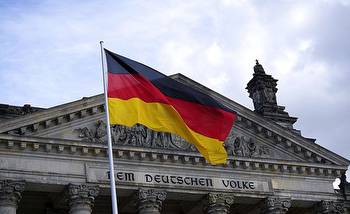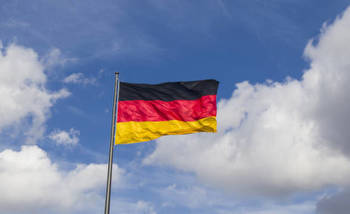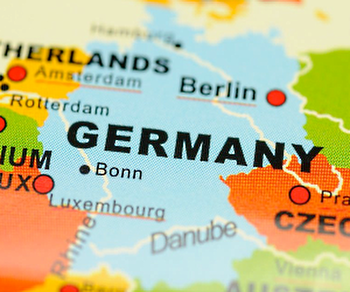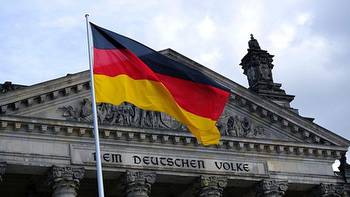The new treaty that could transform Germany’s gambling industry

Germany’s gambling industry has been the centre of much debate in recent years, with regulators seeking to soften some of the strictest laws in Europe.
The new Interstate Treaty on Gambling (ISTG 21), which came into force on July 1, contains some of the biggest changes to gambling legislation in the country’s recent history. Online gambling, previously only allowed in the state of Schleswig-Holstein, is set to be legalized across the nation with new licenses to be made available to operators.
However, the new regulations come with some provisions. Deposit and betting limits will be tightened, along with some heavy alterations to advertising conditions and tax policies. Some critics call these too restrictive, and the treaty faces severe opposition from many.
The German gambling industry before the treaty
Up until July, Germany’s gambling laws were extremely strict. Online gambling was restricted to sports betting, with internet casino games banned in all but one of the country’s states. It meant that there were very few licenses available for domestic operators and states had a monopoly on lottery games.
However, this presented Europe’s biggest economy with a problem. Online gambling was unregulated and untaxed, meaning most of the revenue from German players went to overseas companies. German authorities received much less than countries with updated regulation, such as Denmark and the UK.
With the national industry predicted to be worth €3.3 billion by 2024, the time of reckoning had come. In March 2020, German lawmakers approved the new Interstate Treaty, and the country’s gambling industry would never be the same again.
An overview of the changes
The treaty’s wide-reaching changes took many people by surprise.
For the first time in history, each state will allow licensed operators to run online slots, poker, and other casino games. Licensing will vary according to the game and state in question: an open license for virtual slots and poker, while each state will decide whether to run a monopoly on table games like roulette and baccarat. The number of land-based casinos in each state will determine the amount of available online licenses, which will last for five or seven years.
Yet with these changes come cautionary measures. Each licensee will have to put down a ‘security deposit’ of at least €5 million. The German government is also keen to counter the expected rise in casino use with some restrictions that encourage safe gambling principles. These are designed to slow down the speed of betting and include:
- An obligatory deposit limit of €1000 a month per player
- A maximum bet of €1 on slots
- A minimum of five seconds per spin on slots
The treaty will also tighten advertising. A new central regulatory authority will ensure that there is no sports betting advertising before or during live events, similar to the UK’s ban, while online casino ads will also only be allowed after 9 p.m. and before 6 a.m.
Last, but definitely not least in some critics’ eyes, are the changes to tax laws under the new rules. Licensed operators have seen a tax rise on sports betting, while a 5.3% levy on slots and poker bets is also in effect from July 1.
Support for the changes
Up until July, Germany’s gambling laws were among some of the most archaic in Europe, and this fact has provided the backbone in the argument for reform.
A modern system that recognizes online gambling means that, in theory, German players will start spending their money in domestic casinos rather than in foreign sites – an activity that the authorities can tax, creating a contribution to the national economy.
Christian Tsambikakis, the director of anti-money laundering body Kerberos, welcomed the ‘legal certainty’ when the new era kicked in on July 1, saying that ‘legal and illegal offers can now be separated’ helping the fight against unauthorized providers.
The changes could also present employment opportunities. Big foreign companies are more likely to want a German base that would help their application for a license. The need for German employees means more jobs — and more tax paid into the national coffers.
It will also bring German law in line with more progressive legislation in countries such as the UK, which have recognized online gambling for many years now. Acknowledging that the activity exists not only makes it taxable but also helps develop treatment to remedy the problem gambling issues that it contributes towards — the advertising restrictions and betting limits being two examples of this.
German players will also benefit from a wider choice of domestic gambling sites, something that campaigners have long argued for.
Criticism of the changes
Introducing such widescale changes is bound to attract criticism and, in the treaty’s case, its tax proposals have attracted some of the strongest protests.
Casino operators will pay tax on the staked amounts, a figure higher than the gross gaming revenue (GGR) in many markets. The national collective of sports betting providers, Deutsche Sportwettenverband (DSWV), said this would ‘jeopardize the success of the new regulation’, as it would simply pass the burden on to the customer. The organization’s president, Mathias Dahms, referred to it as a ‘wrong-way driver in tax policy, saying that reforms would be needed.
Industry experts back up this point. Matej Novota, Data and Complaints Lead at independent online gambling resource Casino Guru, said that operators would simply look to build a higher house edge – the mathematically-assured advantage in their favor – in order to maintain their profit margin.
Novota also raised another concern – that higher restrictions would actually push players into the arms of foreign sites and illegal operators. For example, slower spins and maximum bet amounts mean it would take players much longer to meet wagering requirements, the figure required to access bonus winnings. The slower pace of gameplay would also affect their entertainment value.
Others went further. Löwen Entertainment, a German game provider, said that the treaty ‘showed contempt for gamblers and gaming providers’ and could lead to thousands of job losses. Executive board member Daniel Henzgen even labelled it part of a ‘phenomenon of contempt’ for gamblers and domestic providers, illustrating the depth of feeling felt on the matter.
In light of these fears, the DSWV called for German authorities to clamp down on illegal and offshore operators with tough sanctions to deter them from targeting domestic customers. It comes after a reported mass exodus of players during the transition period that started last October.
Yet some people in the industry are optimistic that authorities will take action to stop this in the future.
Early days for the treaty
Any sea change to regulations is bound to attract criticism, especially given the short transition time between passing the laws and putting them into action.
Domestic operators have the right to be concerned about higher tax laws and restrictions on players, especially if it endangers their customer base and gives rivals in other countries, and in the black market, an unfair advantage. German authorities need to back up these changes with tough action to protect domestic players, companies, and workers.
However, the opposite argument is also compelling. An overhaul of German market’s old-fashioned regulations was inevitable, especially after the online gambling industry’s recent boom. With so much online casino revenue seeping out of the country, it’s no surprise that Europe’s biggest economy has taken steps to remedy this.
The changes also appeal to the morality of in many people, who are alarmed at the rise of problem gambling across the globe, not just in Germany. Anti-gambling campaigners will welcome the restrictions on deposit and bet amounts, which will put the German authorities in a good light. In one stroke, they are seen to be boosting the economy and tackling problem behavior – both strong moves for any government to take.
The bottom line, however, is that it’s too early to tell what the long-term effect will be on the German market. It’s likely that the law changes will be subject to review depending on how successful they are – like with any treaty, lawmakers will add amendments to ISTG 21 as they seek to bring the German online gambling industry into the 21st century.



































